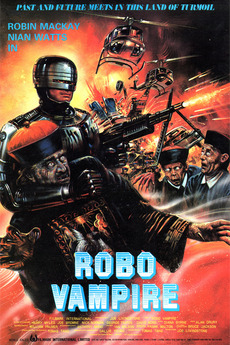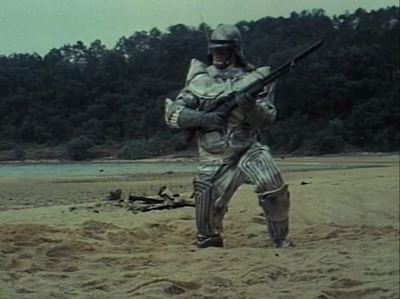Hugo Awards: The Calculating Stars
In 1952, a huge meteorite lands off the eastern coast of the U.S.A., obliterating Washington D.C. and the surrounding environs. This initial destruction is only the start, however, as the strike boils enough water to initially result in dramatic cooling on a global scale. But water vapor is a greenhouse gas, so after this initial cooldown, the earth will experience an accelerated greenhouse effect, potentially to the point where the oceans will boil and the earth will become uninhabitable. Elma York and her husband Nathaniel are scientists and mathematicians who managed to survive the initial impact, and quickly become embroiled in a new space race, but instead of the soviets, we’re racing global warming to establish a colony on Mars. So goes the initial setup of Mary Robinette Kowal’s Hugo nominated novel The Calculating Stars.
It’s a cool premise with lots of potential… and if it sounds a little familiar, that’s because it’s rather similar to the idea behind Neal Stephenson’s Seveneves. Kowal attempts to differentiate this by shifting the timeline back to the 1950s, drawing out the timeline to get out to space, and narrowly focusing on characters and woke social issues. After the initial burst of action from the meteorite hit, the novel slows considerably as Kowal focuses on Elma’s battles against the sexist, racist, anti-semitic forces aligned against her, not to mention a crippling anxiety problem. It’s never boring and Kowal’s style is crisp and clear, mostly free from hooptedoodle, but my mind kept wandering. Sometimes this can be a good thing, but most of my questions about the worldbuilding or technology or even some of the characters basically went unanswered.
The frustrating part about this story is that it’s clear that Kowal knows her space-race era stuff, but is primarily content to leave that in the background. Tidbits and tantalizing hints of fascinating engineering challenges and space travel problems are dropped here and there (showing that Kowal probably spent a lot of time researching and thinking about these things) and they keep the story just interesting enough, but they are clearly not the focus of the novel. Maybe she just assumes most of the people reading her book are already quite familiar with early NASA technology and practices (a fair assumption), but this is supposed to be a science fiction book, and we get precious little of that sort of geeking out. Alright fine, so it’s more a novel about how Elma and friends combat bigotry in an effort to save the human race, right? Well, sure, but even that gets pretty short shrift. There’s a lot of prose devoted to that, to be sure, but Kowal tries to be so inclusive that a lot of it comes off as only being a cursory examination of a particular issue. A huge, diverse cast of characters is introduced, but are rarely fleshed out beyond their differentiating characteristics, ironically leaving many of the portrayals feeling rather stereotypical.
Indeed, the biggest thing holding Elma back from achieving her goal is not sexism or anti-semitism, but rather her crippling anxiety when confronted with reporters and TV interviews (she’s fine under pressure as a pilot or doing complex equations in her head, but she gets severe stage fright whenever she has to give an interview). This struggle with anxiety is actually the best portrayed issue in the book and the only one that really stands out effectively (it is rare to see this sort of topic tackled well), but that only serves to undercut the other issues she frequently brings up. Even that issue is solved rather easily by taking a medication that doesn’t result in complications, other than the fact that she tries to hide it from the space program (which the main villain of the piece tries unsuccessfully to use against her – spoilers, I guess, but it’s not hard to see where this is going).
As a result of the narrow focus on characters, the rest of the worldbuilding also left me wanting. Washington D.C. is destroyed, but we don’t see much of the fallout of that (much more time is spent on our protagonist’s relatives, who lived in the region). There’s a brief mention that the Soviets were hit hardest by the miniature ice-age and that the union dissolved or somesuch. China is briefly addressed. There’s some food riots that happen at one point (after all, the meteorite hit in Spring, meaning that summer crops were probably not very successful), but only peripherally. The space program is better covered, but never really takes full shape because we’re so laser focused on a small group of characters. Ditto for the sense of urgency, which seems awfully vague considering the planet is supposed to be rendered uninhabitable in the near future. As with the whole space program details above, it seems like Kowal thought about all this and developed a realistic alternate history, but consigned it to the background.
After I finished the book, I went on a mini-binge of space-race stuff. Apollo 11 is a recently released documentary with restored, high-definition footage from the moon landing mission. It’s spectacular, featuring never-seen-before footage that looks amazing and while I’m not exactly a scholar of the era, there were a few tidbits that I’d never seen portrayed before. Highly recommended! From the Earth to the Moon is an HBO mini-series from the late 90s (a sorta precursor to prestige TV) that covers a lot of ground in the Apollo program (I’m about halfway through this rewatch, and it’s about is good as I remember – I particularly love the episode titled Spider, which is about the design of the lunar module). Then I watched Capricorn One, a schlocky conspiracy thriller about faking a Mars mission. Certainly not high-art, but better and more fun than I’d have expected.
Kowal covers a lot of ground in The Calculating Stars, but the issue is that it’s already well tread ground. So well tread that I kept thinking of other things that did it better, even in non-fiction. From Seveneves to Hidden Figures to diving down a rabbit whole wondering who the woman in the control room was in the aforementioned Apollo 11 documentary (her name was JoAnn Morgan and she has an interesting story), I got more out of all this supplementary stuff than out of the book itself. Maybe that’s unfair? But we don’t read in a vacuum, all these things are connected and I can’t help but wonder about the premise here. The idea of establishing colonies in space using 50s era technology is great, but it’s a shame that this book only skims the surface of so many fascinating parts of that. Even the areas focused on don’t feel entirely baked. There is a sequel to this novel called The Fated Sky, which seems like maybe it would cover more dorky space stuff or get at some of the other things I was interested in, but I can’t really gin up any enthusiasm to proceed (and it’s not nominated either, which it easily could have been given the way the Hugos work).
I’m clearly in the minority here when it comes to this book though. It’s been well received and most readers seem to get a lot more out of it than I do, which is great. Not everything has to be for me, and I can respect a well constructed novel (which this is), even if I didn’t entirely connect with it. That being said, it will end up somewhere near the bottom of my Hugo ballot.

